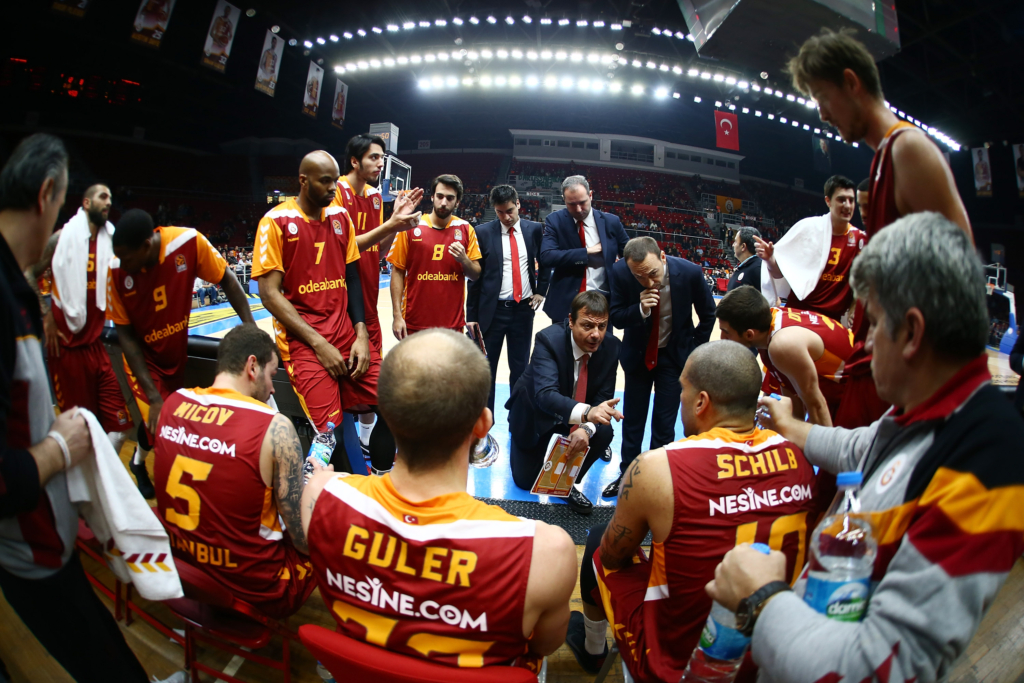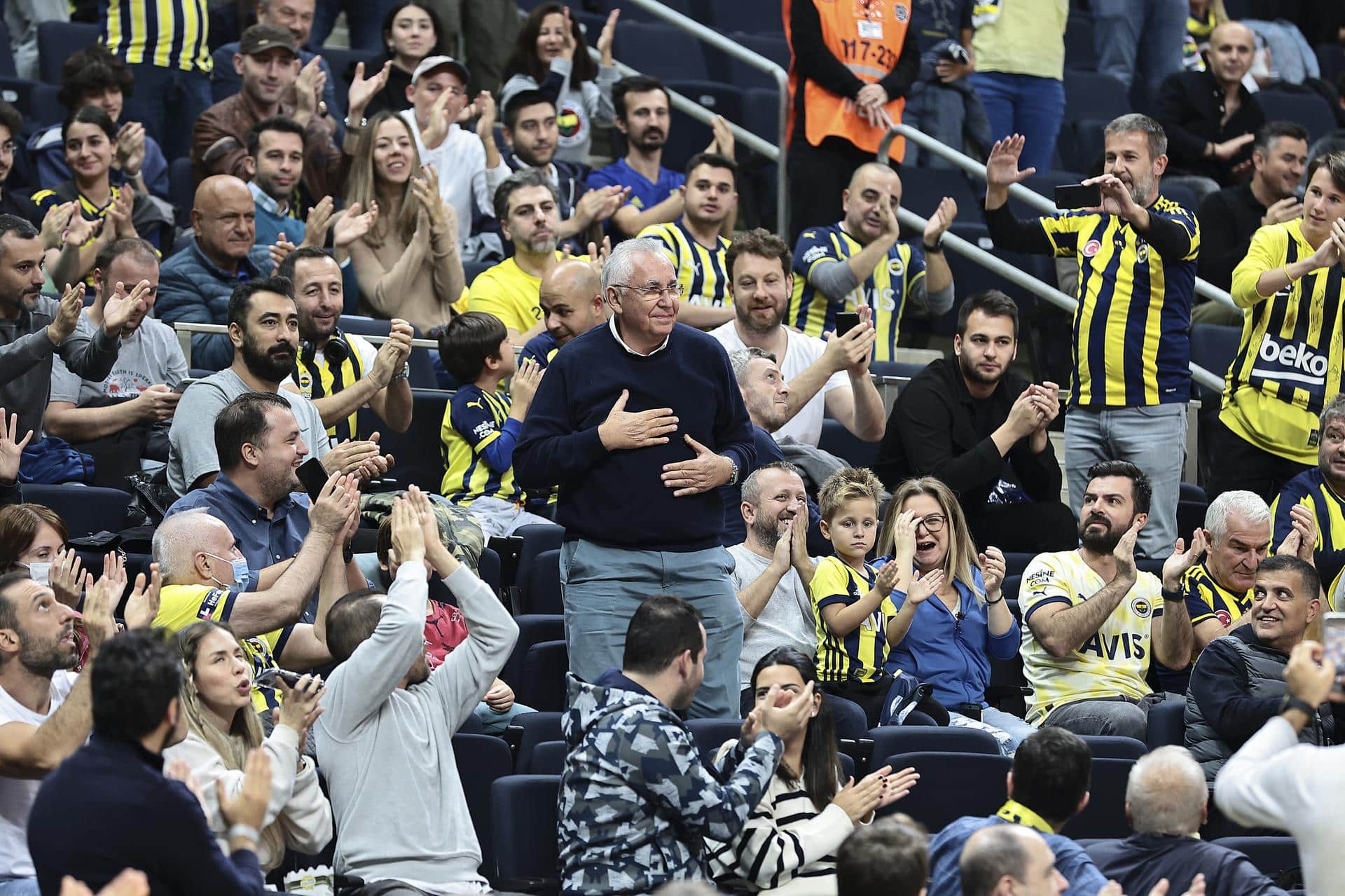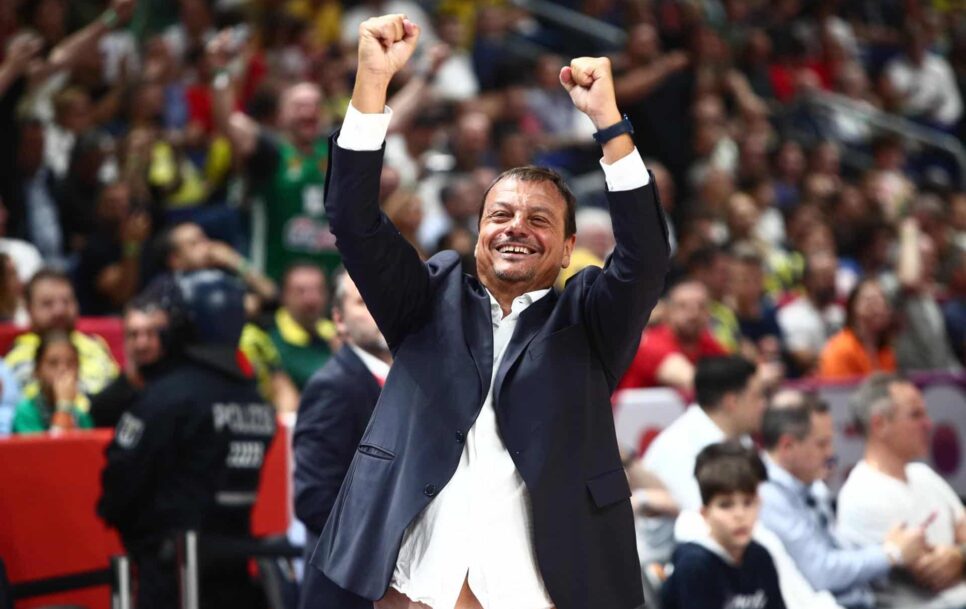Ergin Ataman – a serial winner whose career turned around in Italy
As many fans adore the 58-year-old Turk, there are just as many who can’t stand the basketball coach from Istanbul.
But there’s no denying this: Ataman is a coach who delivers results. Over his more than 25-year career as a head coach, he has won four different European competitions, led his teams to championships in both Greece and Turkey, and in three of the last four EuroLeague seasons, his club emerged victorious. To be fair, the tally could have been four out of five if not for the COVID-19 pandemic halting the 2019/20 EuroLeague season when Ataman’s Anadolu Efes Istanbul was dominant.
It’s also true that Ataman has never been on the same tactical level as someone like Željko Obradović. His strengths lie in building the roster, unwavering confidence, and motivating players to give their all. You might love or hate his coaching style, but looking at his results, it’s impossible to call him a bad coach.
Throughout his long career, Ataman has been the head coach of nine different clubs. Besides his home country and Greece, he has also worked in Italy, and for many teams, the man who led Panathinaikos to their first EuroLeague championship in 13 years this season is more than just their former coach.
Take Galatasaray Istanbul, for example. In his very first season with them in 2013, he won the Turkish championship. Despite the club facing financial difficulties the following year, he stayed until 2017, winning the EuroCup title, the second-strongest club competition in Europe, in 2016.

Or take the Italian club Montepaschi Siena, where Ataman worked between 2001 and 2003. In 2002, he led the team to win the last Saporta Cup, Montepaschi’s first and only European title. The following EuroLeague season, they reached the Final Four for the first time, finishing third.
Efes sent Ataman to the U.S.
Unlike many top European coaches, Ataman’s playing career was nothing spectacular as he never made a breakthrough to professional basketball. However, this didn’t extinguish his passion to make it big in the sport and achieve something significant.
On the EuroLeague podcast “The Crossover with Joe Arlauckas,” Ataman recalled starting to coach kids at just 20 years old, after being told by the Eczacıbaşı club that he would never make it to the first team, prompting him to hang up his sneakers.
While coaching children, Ataman studied economics at Istanbul University. “My family had a company in which I was occasionally involved as vice-president. It was important for me to have a plan B. It allowed me to choose with a peace of mind and to take some risks in basketball,” he added.
For his father, who passed away this year, Ataman’s desire to become a basketball coach was surprising. “He initially told me to do it part-time, but I immediately understood that, apart from the money which wasn’t so bad, basketball was different. It was my life, it was more than a job,” Ataman said.
A pivotal role in Ataman’s story is played by Aydın Örs, a giant in Turkish basketball, who was his mentor at Efes. Although Ataman made his first steps as a head coach elsewhere, at Türk Telekom Ankara and Pinar Karşıyaka, Efes management contacted him after his time at Pinar and made a proposal: go to the U.S., learn about basketball, and develop. When Örs leaves soon, the head coach position at Efes will be yours.

Ataman agreed and spent the 1998/99 season as an observer at Stanford University, whose basketball team was coached by the highly respected Mike Montgomery. What did the Turk learn? “Montgomery’s great humanity and the very professional sports organization. They were young people who trained at six in the morning, then went to school and then came back to train more, always preceded by meetings with video sessions etc,” Ataman recalled, taking many lessons from Montgomery and Stanford.
After the season ended, Ataman informed Efes he was returning to Turkey. Örs wasn’t ready to step down yet, so Ataman went back to Pinar for seven games. At the end of the season, Örs decided to leave, and although Ataman had a contract with Pinar, Efes bought it out.
Under Ataman’s guidance, Efes enjoyed success in Europe. Although they didn’t win the EuroLeague, he became one of Europe’s most esteemed young coaches. Suitors came knocking, and in 2001, the Turkish coach decided to move to Siena, Italy.
The brash Ataman
In an interview with Eurohoops, Ataman explained that the offer from Montepaschi was a turning point in his career. “The breaking point in my life was the offer I received from Siena when I was only 35 years old. This turned me into an international coach. Frankly, it was not an offer I expected at such a young age,” he said. “I thought to myself that if I go to Italy, it would only be to become a champion.”
It’s important to note that the Italian championship was arguably the strongest domestic league in Europe at the time, with several top coaches working there. Ataman was very brash even then, telling the local media how Montepaschi would enjoy great success under his leadership.
Italian journalist Simone Mazzola has recalled that Ataman was initially seen in Siena as an ordinary and arrogant coach who thought he was much better than he actually was. However, winning the Saporta Cup and finishing third in the EuroLeague in the following season showed that although the coach had a big mouth, he had every right to.
After this year’s EuroLeague triumph, Panathinaikos forward Dinos Mitoglu recounted how Ataman told the team last summer that they would win Europe’s strongest club competition. According to Mitoglu, no one believed the coach, but history shows this wasn’t the first time Ataman made a grand proclamation. This is his style, and there’s a reason behind it.
“I am an assertive person wherever I go. First of all, you will put forward this big vision and claim, and then you will motivate people to form the team that will reach that goal,” Ataman said. “Moreover, I set this goal for them from the first day, not just because I moved to Italy, but because I thought I needed to show my strength there.”
In late 2001, Fabio Fineschi, a journalist for the Italian publication Il Palio, wrote about Ataman’s first months at Montepaschi in a way that is familiar to European basketball fans: “A few days were enough to understand that this Turk would leave a mark on the lands of Siena. After a few months, we can easily say that Ataman will win a cup in Italy.”
Mazzola has commented that under Ataman’s guidance, Montepaschi became a significant force in Europe. “Until then, Montepaschi was only known in Italy. Ataman definitely laid the foundation for the later successes, and in this sense he deserves great appreciation.”
Treble season
Looking at the results, it’s clear that Ataman became a serial winner after leaving Montepaschi. Out of his 26 titles as a head coach, 24 came after his two seasons in Siena. Notably, his CV includes a season in Turkey where he achieved a clean sweep with Efes: in 2009, they triumphed in the championship, the cup, and the super cup.
Three years later, another Istanbul giant, Beşiktaş, felt Ataman’s golden touch. Although the summer started with financial difficulties and not a single contracted player in August, they managed to bring NBA star Deron Williams to Europe thanks to the NBA lockout.
Ataman then approached the owner of Turkey’s largest gas company and convinced him to become Beşiktaş’s sponsor. The financial boost brought in players like Puerto Rican legend Carlos Arroyo and British high-flyer Pops Mensah-Bonsu. Despite the end of the NBA lockout and Williams returning to the New Jersey Nets, Beşiktaş played brilliantly, winning the FIBA EuroChallenge and the Turkish championship and cup.
One cornerstone of Ataman’s success has been adapting with the times. He told Arlauckas that over the years, he has given his players more freedom on the court. Ataman added: “I always respect players as individuals. I try to understand what their good qualities are and make them feel important in the club. It’s also crucial that the environment around the players is professional and that salaries and bonuses are paid on time.”
Therefore, it’s no surprise that Ataman is a beloved coach among his players, who are willing to give their all on the court for him. And it’s no surprise that Ataman’s teams win a lot because the combination of a great coach and great players being on the same page is, figuratively speaking, deadly.







